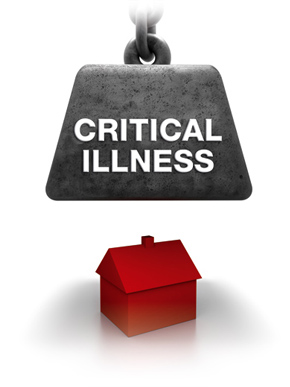 Most people who have traditional health insurance feel good about the coverage their policies provide. Unfortunately, many of these policyholders fail to realize that if they were to fall critically ill their policies may not be there for them when they need coverage the most.
Most people who have traditional health insurance feel good about the coverage their policies provide. Unfortunately, many of these policyholders fail to realize that if they were to fall critically ill their policies may not be there for them when they need coverage the most.
Traditional health insurance policies usually have a payment amount cutoff and a limited number of days you may stay in a hospital during your policy term. This could prove detrimental to you if your doctor diagnoses you with an unexpected critical illness. That’s why adding a supplemental policy to your health insurance that has critical illness cover is so important – it may just save your life. Critical illness cover will not only cover your hospital costs, it will also pay out regular income to you when you are out of work due to your illness.
Critical Illness Cover: The Basics
Critical illness cover will not insure you for minor injuries. You will not be able to use it for emergencies such as broken bones. However, your plan will definitely cover you if you have a serious, life-threatening medical condition – the type of condition that could cause you to lose your job because it renders you too weak to work.
Illnesses that are generally covered include:
• Cancer
• Heart Attack
• Organ Transplant
• Stroke
• Alzheimer’s
• Multiple Sclerosis
• Severe Burns
• Blindness/Deafness
If you need to verify whether any of these critical illnesses are covered under your plan, check with your insurer. A complete list of serious conditions that are covered is typically included in your policy documentation. As with most health insurance policies, when applying for critical illness cover, you will be subject to a risk assessment. Your age, gender, current health, smoking, family history, and past medical history are all factors your insurance provider will consider when you apply, and the results of the assessment may affect the price of the premiums you will pay.
With critical illness coverage, there is an emphasis placed on family history, smoking, and body mass index because these are all major risk factors for a future serious illness. These factors may raise the costs of insurance, and you may also be excluded from coverage for certain serious illnesses due to your perceived risk.
This is precisely why you must read the fine print of each policy you consider. Make yourself fully aware of every clause in each policy so you’ll know what’s covered – and what’s not. Seek out the most comprehensive coverage you can find for your money and assess the restrictions that apply to each policy. Additionally, it’s a good idea to look for life insurance companies that are liberal on their risk assessment.
If you are young and healthy, it’s best to enroll in a critical illness cover plan now. Your premiums will be cheaper the younger you are. As you age, your risk for certain life-threatening conditions dramatically increases, and your premiums will rise in tandem.
The Importance of Critical Illness Coverage
Insurance companies provide critical illness cover with the intent of providing financial stability to people who have been diagnosed with a serious condition. The benefits of purchasing this type of policy are coverage for hospital costs incurred during your treatment, physical therapy after any operations, home healthcare assistance and hospice, and help for any lost income you may have suffered due to your illness.
Your medical costs may not be all your plan covers. Your insurance could also pay for your mortgage if you contract a serious illness or die. With critical illness cover, you may have the ability to manipulate your plan to pay a portion of your mortgage or pay your mortgage in full. Check with your provider to find out if this is a benefit of your plan.
Other Alternatives
Most critical illness cover plans are designed to pay you a lump sum of cash if you are diagnosed with a serious illness that is covered in your policy. Treatment for serious illnesses gets very expensive very quickly, and an alternative policy option may be direct payment to the hospital on your behalf for any costs that you incur during treatment. This helps you skip the long, frustrating process of reimbursement for payments you make, and depending on your plan, it may eliminate out of pocket expenses altogether.
Another alternative is to receive care from highly specialized hospitals located outside of the country. This type of coverage will pay for all travel expenses and accommodations for you and a companion, and will even provide translators if necessary. This is a highly specialized plan, so shop around for providers before deciding which company is for you.


Leave a Reply